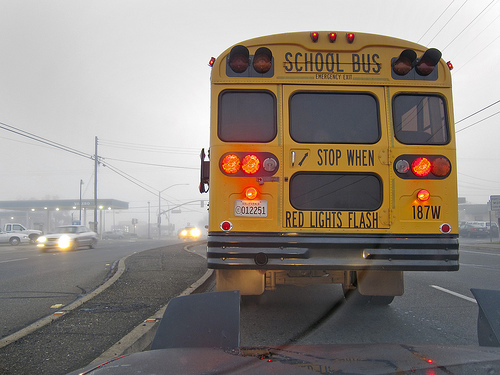Some more movement in the world of ed-tech: TSL Education, the digital publisher behind services like TES Connect — billed as the “largest” network of teachers in the world with over 52 million users — is changing owners again. Investment firm TPG is buying the company from Charterhouse, the UK-based private equity firm. The firms are not disclosing the price but Reuters is reporting it as around £400 million ($600 million), and we have since confirmed this figure with a source close to the deal.
The companies say the transaction is expected to close in Q3 2013. Because Charterhouse never disclosed the amount it paid for TSL when it bought the company in 2007, it’s hard to say whether this exit comes at a loss or gain for TSL’s previous owner. Back when Charterhouse first started looking for a buyer in December 2012, the Sunday Times reported that it was expected to be sold at a loss, with TSL showing declines in pre-tax profits to the year ended September 2011 to £34 million from £45 million. Charterhouse itself bought TSL from Exponent, which had bought the firm from News International in 2005 for £235 million ($365 million). This makes TPG the fourth owner of the education company.
In the last year, London-based TSL Education, spun off from News Corp’s News International (where it got its start in the early 1900s and was better known as the Times Educational Supplement), has evolved a lot from its print origins in an effort to better tackle new frontiers in education information.
The company’s main product is the TES Connect portal, which links up with different educational forums, online course materials, job boards and other resources. The site says that it currently has 52,241,744 active users, including both teachers and students. TES Connect runs alongside the TES magazine and also has its own, standalone premium service called TSL Pro, which “costs less than £3 per month,” according to the site. This is presumably also there to offset declines in other revenue-generating areas like job classifieds. Today, TSL’s operations are global, spanning some 197 countries, the company says.
The new owner says that it plans to invest in both its online and off-line businesses.
“We are extremely excited to enter the next phase of our growth strategy with TPG,” said Louise Rogers CEO of TSL Education, in a statement. “TPG shares our vision to help drive up standards of education by putting TSL platforms into the hands of every teacher in the world. We are fortunate to have found a global partner who has extensive experience in digital and an impressive track record of growing similar businesses.”
It’s hard to say whether TPG will be more successful with TSL than Charterhouse has been. TPG firm has around $57 billion in assets under management now, including companies like SurveyMonkey but past investments also include Burger King. Yes, it’s soup to nuts.
“Over the past several years Louise and her team have done an outstanding job in transitioning the business to become the leading site for teachers both online and in print while gaining a sizeable and growing audience across the globe,” said Karl Peterson, managing partner for TPG Capital LLP, in a statement. “TPG’s global presence and extensive online experience fit well with the Company’s ambitions and we anticipate accelerating growth through further investments in TSL’s digital capabilities.”
The wider landscape of educational publishing and ed-tech is changing rapidly these days, with more information going online and bumping up against bigger evolutions in cloud computing, big data and disruptive business models for how to monetize the internet.
Other legacy companies like Elsevier have tried to buy their way into the next phase of innovation — it purchased social platform Mendeley earlier this year reportedly for between $69 million and $100 million, according to our sources. Companies like Pearson, meanwhile, are making smaller investments in young startups through an incubator program, as well as targeted acquisitions, such as the recent purchase of Learning Catalytics (yes, it’s making larger acquisitions, too).
Image: Flickr
